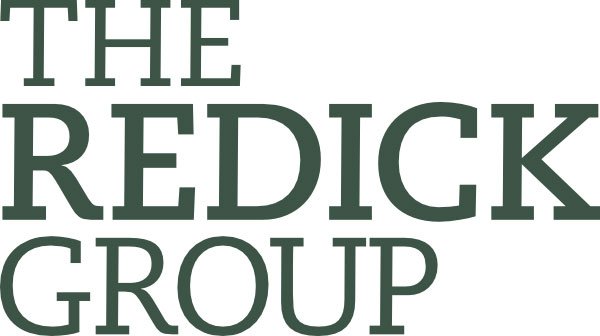For starters, remember to always think of LinkedIn as a tool for business, not an online résumé. Even though LinkedIn fancies itself as just that—an online résumé (and then wonders why more people don't engage)—executives should not treat LinkedIn as an online résumé.
Read MoreRetained executive search consultants are looking for people who are happy in their current positions, and for whom something new might be of interest. In fact, those happy potential candidates are often so happy where they are, that they're not expecting the call, and the art of recruiting becomes essential in engaging them in the first place.
Read MoreIf you're angling for a board role and you've been searching for a life raft, you might rejoice knowing that one search term holds an almost magical key to unlocking many of your questions.
Read MoreParagraph one references a Fast Company report, paragraph two references a PayScale survey, and paragraph three references a Dice survey of 1,600 technology professionals in the U.S.
I love the collective insight, but when you think about the sources, they're kind of apples to oranges, so you can't look at the findings as a single harmonious conclusion.
Read MoreSometime things are so obvious we miss them entirely.
That's what happened this year when a client's new job was mentioned on Fortune.com. His LinkedIn profile had worked like a charm, and his executive résumé and other materials were there to support his candidacy for the right company.
Read MoreI've come to learn that [a big part is] the amount of risk and [how the ideal candidate's] expertise mitigates that risk. It's a big reason why recruiters usually stick to a sure thing when recruiting a high profile role, and why it's important for someone who's a ways into their career—but not at a level they'd like to be—to have an advocate on the inside. In other words, someone who's willing to stick their neck out and vouch for them.
Read MoreThe Job Description Analysis was born out of frustration, honestly. In 2009, a client gave me a spate of job descriptions for which he felt qualified, but they didn't hold a cogent through-line when I considered the entirety of his career. In fact, feelings rarely tell the whole story, nor lead to coherent decisions.
Read MoreA European client who's frequently at the cutting edge of technology and marketing yesterday forwarded HBR's The Rise of the Chief Marketing Technologist article by Scott Brinker (CTO at Ion Interactive) and Laura McLellan (research vice president at Gartner).
Read MoreIs it important to be able to talk about yourself at a high level? Yes. That's the purpose of developing an aggregate understanding about yourself and your career, which is really what an "elevator pitch" is. But that should lead to an in-depth conversation, in which you should be equally skilled.
Read MoreLet's face it. Writing a LinkedIn recommendation—even a really good one—isn't going to win you any literary awards. In fact, your beautifully crafted copy will these days be cemented to the absolute bottom of your subject's LinkedIn profile. No fame for you today.
So why try to write a great LinkedIn recommendation? Why not just dash off a few lines of well-trodden, risk-free copy used by so many others?
Read MoreAngela's three LinkedIn Pulse posts, as of today's date, reflect a professional who is in possession of her strengths. Her June 23, 2014 "Starting Anew" post is particularly reflective, as she offers insights into the first 30-90 days of her own new job at Apple.
Read MoreStill, working at Google is rightfully coveted, and Business Insider's recent Here's what it's REALLY like to work at Google, the 'world's most attractive' employer article offers a glimpse into the life of a Googler.
Read MoreAs an executive résumé writer and career coach who has long-worked with Fortune 50 executives, I've also long-noticed that CEOs—somewhere in their early careers—either founded a company and drove it to success, or in some other way faced a wall of professional accountability that might have crushed their peers.
Read MoreIf you're a recent or about to graduate humanities student, read the whole article, top to bottom. Then, if you're interested, start doing the research and the networking to make it happen. The way you think is valuable.
Read More"Liberal arts majors take on a wide range of roles." Of interest, fourth on the list is folks in project management. When I reflect on the swath of project management professionals with whom I work up and down the west coast, a lot of them have degrees in the humanities.
Read MoreFrom Ben Horowitz' "the hard thing about hard things is that they don't have a formula" to Jason Fried's coauthored startup book, 'Rework.' (If you missed it, be sure to catch my recent mention of Jason Fried's not-to-be-missed December 2012 blog post about the role mistakes play in our lives.)
Read MorePut another way: 80% of first-time tech board members who participated in Korn Ferry Institute's research landed a board seat via their networks.
Too many otherwise successful executives and senior professionals downplay or never think about the role of networking while job searching, let alone the task of securing a board seat. Does the 80/20 rule win again?
Read MoreBut the question is a good one, because every journey begins with a single step.
If you're thinking what a Fortune 500 board directorship might look like, Heidrick & Struggles yesterday released their Four Boardroom Trends to Watch. The downloadable publication presents an interesting breakdown including new seats filled, average age of directors, percentage of directors who are current or former CEOs and CFOs, and more.
Read More


















